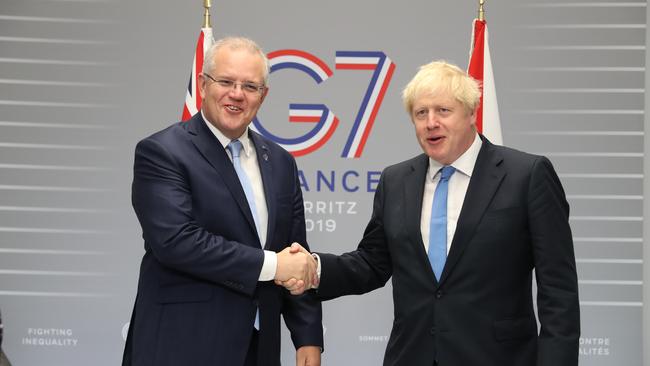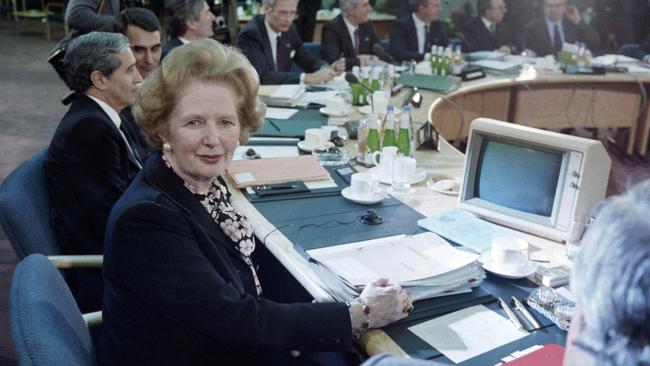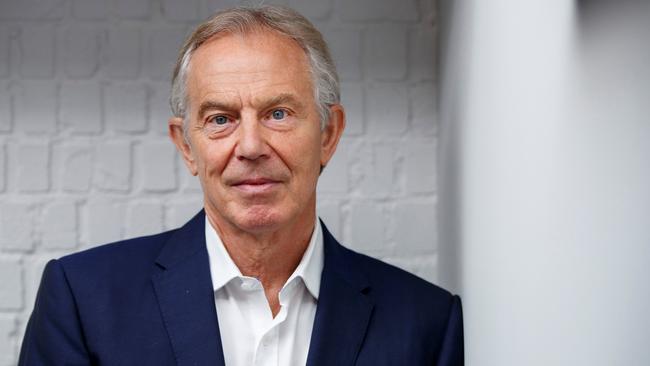Is the job of prime minister an impossible one?
Ambition often outweighs the skills and clouds the judgment of those elected to lead their country.

When Boris Johnson went to Buckingham Palace to be commissioned as prime minister, the Queen said: “I don’t know why anyone would want the job.” It is, to say the least, a difficult job. But as the office of prime minister reached its 300th anniversary last month, it is worth asking: is it an impossible one?
Sir Anthony Seldon is the leading historian of the prime ministership, having authored and edited books on every occupant of 10 Downing Street from Margaret Thatcher to Theresa May, and a new book about the history of the institution itself: The Impossible Office?
“Prime ministers come to power with impossible expectations as to what they can achieve, encouraged by their own ambitions, but they often have little experience and not enough knowledge to know how to make the office really work,” Seldon says in an interview with Inquirer.
“The job has not become impossible, even though the challenges may make it seem impossible, because prime ministers in Britain and Australia, and elsewhere, have had the ability to make it work, get around the challenges and deliver what they wanted to achieve.”
The office of prime minister has been inherited by multiple nations, including Australia. While there are constitutional and cultural differences, the essential purpose and role under the Westminster system remains the same since the first occupant, Sir Robert Walpole. He was made First Lord of the Treasury and Chancellor of the Exchequer by George I on April 3, 1721.
The notion that prime ministers have centralised power into their orbit or become more presidential — challenging the concept of primus inter pares — is rejected by Seldon. But he does acknowledge that some prime ministers have been able to dominate cabinet and parliament, adopting a presidential style, such as William Pitt the Younger, William Gladstone, David Lloyd George, Clement Attlee and Thatcher.
“It has been periodically presidential when you have landmark prime ministers,” Seldon says. “But overall, there has been a decentralisation of power. When prime ministers have tried to centralise power, they have not usually succeeded. It is still very hard for prime ministers to exercise control over the Treasury, for example.”
There is “no magic formula” for prime ministerial greatness. Nevertheless, Seldon argues those eyeing a storied place in history need: a long apprenticeship to learn about governing and develop maturity and wisdom; clear ideas about what they want to achieve; a moral seriousness in their work; and an iron will with an intense work ethic, discipline and drive.
These are elements of “human agency”. Successful prime ministers also need to have intelligence and a balanced temperament; work effectively with their cabinet and party; and be “the national storyteller” capable of great oratory and able to persuade. But there are “circumstances” and “events” that shape success or failure. Seldon says a truly effective prime minister needs to be in power for at least five years; have a large parliamentary majority; and be in office during a historic time.
“If Thatcher came to power in 1970, she would have been a hopeless prime minister but 1979 was her hour,” Seldon says. “If Lloyd George had died of the influenza plague in 1918 and Churchill became prime minister, he would have been hopeless but 1940 was his moment.”
Most surveys rank Winston Churchill as the greatest British prime minister. Seldon argues Churchill made his mark on the country but not on the office. He names Churchill, along with Harold Macmillan, Harold Wilson, Edward Heath and Tony Blair, in the second-tier category of “major contributor” who each had a decisive influence on Britain post-war.
But the “agenda changer” prime ministers who changed the country and the office are: Walpole, Pitt the Younger, Robert Peel, Viscount Palmerston, Gladstone, Lloyd George, Attlee and Thatcher. The third tier is the “positive stabilisers”, which include John Major, Gordon Brown and David Cameron. The “noble failures” include Neville Chamberlain and May.

Prime ministers need to work within, and sometimes get around, the “constraints” on their power — such as parliament, cabinet, public service, judiciary and parties — to be effective. They must run the gauntlet of the media, and interest groups such as unions and business.
In a BBC Radio series to coincide with the 300th anniversary, Blair told Seldon he did not enjoy being prime minister. With a huge responsibility and large workload, relentless pressure and constant scrutiny, it is often a thankless task. Most depart feeling betrayed by their colleagues or embittered by the voters’ rejection. Many pay a high personal price, with a toll taken on their family and health.
“There is a tendency to find their worst traits and not to see them as flesh-and-blood human beings with their own families, their own frailties, their own fears of the night,” Seldon says. “But if they don’t learn lessons, and try to please the media too much, and instead just get on with the job, they would do better.”
One of the reasons Seldon has little sympathy is that many prime ministers come to the position without having really thought about the office, studied its history, tried to understand how it works and worked out what they really want to achieve. They are too busy trying to get there that once they make it, they fail.
“They all think they can do it better than their predecessors,” Seldon says. “They turn up on the pitch leading their team but they haven’t done their training, they haven’t got the skills, they haven’t worked out what the game plan is and they end up at the bottom of a scrum with everyone beating them to death, and they wonder ‘how did that happen?’.”
We are no longer attracting the best and brightest into politics, a problem Seldon says is also evident in the UK.
“It is undeniably true that the intellectual, personal, ethical quality of politicians has declined,” he argues. “There is not enough money, there’s not enough public respect and there is not enough value placed in schools and universities on service and leadership as there once was.”
Reflecting on a lifetime of studying prime ministers, Seldon says the most compelling is Churchill. His first book, Churchill’s Indian Summer (1981), was about his return to the prime ministership and second government from 1951 to 1955.
He found two recent prime ministers — Brown and Major — especially intriguing. Brown wanted to be prime minister so much but did not live up to his own expectations. Major deserves reassessment.
“Brown had so many of the qualities of being a great prime minister but he had to wait 10 years and he became progressively angrier towards Blair,” Seldon says. “He had deep moral convictions but he was lacking in self-knowledge and consumed by anger, and that damaged him and stopped him being the high-minded person that he wanted to be.

“Major is the one I feel most at home with,” Seldon says. “I think he is a great man, hugely attacked as prime minister, but he did a very good job, as many people now recognise. He was much better than the voters thought he was at the time.”
Writing about prime ministers can be dangerous, Seldon reflects. The first prime ministers he interviewed were Alec Douglas-Home and Harold Wilson. May and Brown were upset about his assessments of their legacy. He found Cameron likeable but frustrating. Thatcher was difficult to interview whereas Blair is able to take a broader view of his time in power that helps to form a detached judgment.
“If you get too close, you can lose your perspective and the expectation grows that you are going to see their prime ministership in the way that they see themselves,” Seldon says. “So, I always try to keep a little distance.”
Is there a prime minister Seldon wishes he could interview? “Pitt the Younger,” he says. “He was a very lonely man, possibly gay, isolated. It would be good to ask what motivated him — what was his inner light? He was a man of very high principles and morality. I would like to understand more about him.”
Asked if there are lessons from history that Boris Johnson and Scott Morrison, and any other prime minister, would do well to heed, Seldon does not hesitate to offer advice.
“Stop doing so many unimportant things that you can leave to others, practise mindfulness by taking an hour out of every day to reflect honestly on how you are travelling and have around you experts — people who are profoundly thoughtful and understand how to run a government,” he says.
“Prime ministers in any country would do well to listen to civil servants more than political advisers. You need people around you who have experience and will tell you things you do not want to hear. The great seduction of every second-rate leader is to surround themselves with second-rate people.”
Anthony Seldon’s The Impossible Office?: The History of the British Prime Minister, authored with Jonathan Meakin and Illias Thoms, is published by Cambridge University Press




To join the conversation, please log in. Don't have an account? Register
Join the conversation, you are commenting as Logout